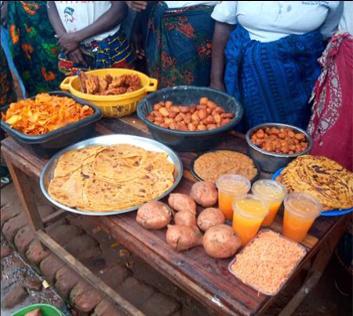Tanzania National Report on Alternatives to Highly Hazardous Pesticides (HHPs) - Second Phase

Highly hazardous pesticides (HHPs) are a threat to human health and the environment, with significant impacts on developing and transition countries. In 2005, more than 100 governments at the Fourth International Conference on Chemicals Management (ICCM4) agreed that HHPs are an issue of global concern and reached a consensus resolution to give priority to promoting agro-ecological alternatives in the process of implementing the strategy on HHPs developed by FAO-UNEP-WHO.
Tanzania is endowed with a range of natural resources and a favourable climate that allows a range of crops to be grown, including maize, rice, sorghum and millets, beans, cowpeas, cassava, sweet potato, round potatoes, carrots, tomatoes, leafy vegetables, onions, citrus fruits, pineapples, cotton and sisal, coffee and tea, and spices. Agriculture continues to be the leading economic sector in terms of number of people employed in it. Over 80 percent of the population lives from agriculture, particularly small scale agriculture.
Local communities, particularly smallholder farmers and civil society organizations, have discovered several alternatives to HHPs and they are using them to replace HHPs when necessary. The results from fieldwork carried out by AGENDA in November 2020 shows that farmers, especially those who are practicing organic and agro-ecology farming, are using alternatives, mainly herbal concoctions. According to them, the alternatives have been helpful despite the challenges encountered. However, the information has not been reported to the government so the application of such practices has not spread to farmers in other areas.
AGENDA previously participated in a Toxics-Free SDGs project related to phasing-out HHPs in Tanzania, and this report is a continuation of that project. It covers the period from October 1, 2020 to January 31, 2021, as required by the agreement. The work included the review of the registered plant protection substances for use in Tanzania to identify HHPs among them, as well as other tasks.
In implementing this project, AGENDA visited four groups of smallholder farmers in Mvomero district in Morogoro region. AGENDA was accompanied by the agricultural officers (district and ward). At all levels, the discussions were based on the opportunities and challenges faced by farmers regarding crop and animal production. Emphasis was on the situation of HHPs use, especially those used for tomatoes production, their alternatives, organic production and marketing opportunities, their knowledge, attitude and practice, etc. The information below is from the literature review, consultation with stakeholders and the field visit. In addition to this report, AGENDA has prepared an outline of a "Strategy to phase-out HHPs in Tanzania" and has submitted it to the national body responsible for registration of plant protection pesticides, Tropical Pesticides Research Institute (TPRI), as a suggestion for their consideration.
This report relates to Sustainable Development Goals 2, 3, 6, 8, 12, 13, 14 and 15.
Special thanks to IPEN's Anglophone Africa Regional Coordinator Silvani Mng'anya and IPEN's Anglophone Africa Regional Hub AGENDA for their important contributions to the development and finalization of the project.
| Attachment | Size |
|---|---|
| 4.49 MB | |
| 479.77 KB |
